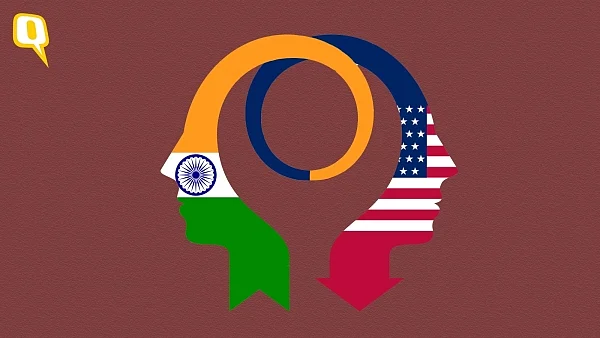India, US Set for Productive 2+2 Ministerial Dialogue: Officials
The 2+2 on December 18 comes after a record four meetings between Modi and Trump this year.

advertisement
The first-ever India-US ministerial 2+2 dialogue on American soil is expected to be a “highly qualitative and productive” meeting during which some key agreements that will augment the bilateral security ties could be signed, according to senior officials.
External Affairs Minister S Jaishankar along with Defence Minister Rajnath Singh would be hosted by their American counterparts Secretary of State Mike Pompeo and Defense Secretary Mark Esper at the Foggy Bottom headquarters of the State Department on 18 December.
The 2+2 on 18 December comes after a record four meetings between Modi and Trump this year, including the massive joint address by the leaders in Houston in September.
“A lot of progress has been made in the areas of foreign policy and defence between our two countries and we are looking forward to a highly qualitative meeting,” Shringla told PTI ahead of the 2+2 meeting.
The fact that the meeting is occurring is a success in itself and testament to the priority both the US and India place on the relationship and cooperating to advance their common interests, said Joe Felter, US Deputy Assistant Secretary of Defense for South and Southeast Asia.
Felter, who played a key role in the first 2+2 last year in the defense side of the talks, is a senior research scholar at Center for International Security and Cooperation and a research fellow at the Hoover Institution both at the Stanford University.
It is very well possible that the two countries formally sign the Industrial Security Annex to the General Security of Military Information Agreement (GSOMIA-ISA).
There is a high possibility of announcements on pending defence sales like MH-60R helicopters, MK-45 naval guns and other systems under consideration.
While the 2+2 format had a very successful launch last year, this year the relationship faces “strong headwinds”, according to Rick Rossow from the CSIS think-tank.
The differences over trade issues, while on pause, still sits in the backdrop. And India’s decision to acquire the Russian-made S400 missile defense system looms as well, he said.
The ISA allows India’s private sector to handle sensitive defense production, while the BECA agreement opens the door for deeper geospatial intelligence hearing.
There is the likelihood the two sides will agree on some more arms purchases, she said.
The US has always wanted India to focus more on Indo-Pacific and align itself with American grand strategy.
China has been flexing its military muscles in the Indo-Pacific region.
Beijing asserts nearly all of the South China Sea as its territory, while Taiwan, the Philippines, Brunei, Malaysia and Vietnam all claim parts.
“Further, currently India is facing intense scrutiny in Washington DC over the last few months over Kashmir, the National Register of Citizens and the Citizenship Amendment Act. It is to be expected that these issues will also come up during the conversations especially with the State Department.”